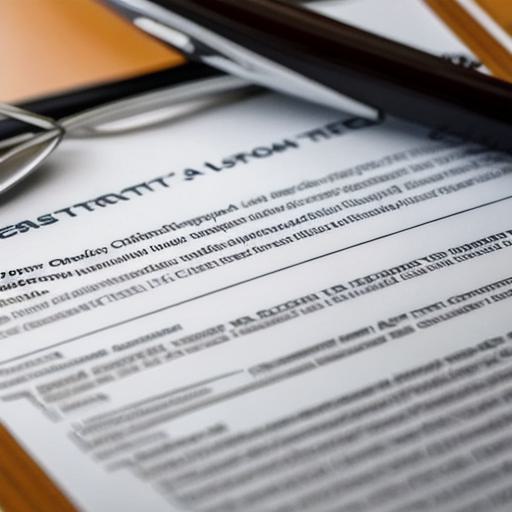If you believe that the will of a deceased loved one in Texas is invalid or does not reflect their true wishes, you may be able to contest it. However, this process can be complex and emotionally challenging. In this article, we’ll provide you with a step-by-step guide on how to contest a will in Texas, including what to do if the will was created in another state.
Introduction

When someone passes away, they may leave behind a will that outlines how they want their assets distributed after their death. However, there are situations where a person may feel that the will does not reflect their true wishes or is invalid for some reason. In such cases, it may be necessary to contest the will in court.
Contesting a Will in Texas: What You Need to Know
Before we dive into the steps involved in contesting a will in Texas, let’s first understand what makes a will valid or invalid. Here are some of the common reasons why someone might want to contest a will:
- The person creating the will may not have been of sound mind at the time of its creation. For example, if they had dementia or other mental health issues, their will may not be legally binding.
- The person creating the will may have been coerced into signing it. This could happen if they were under duress or threatened into doing so.
- The person creating the will may have left out beneficiaries that they intended to include.
- There may be errors in the will, such as incorrect names or typos.
In general, a will is considered valid in Texas if it meets certain requirements. These requirements include:
- The person creating the will (known as the testator) must have been of sound mind when they created it.
- The testator must have signed the will in the presence of two witnesses who are not beneficiaries under the will.
- The witnesses must sign the will as well, acknowledging that they witnessed the testator’s signature.
If a will meets these requirements, it is generally considered valid and cannot be contested. However, if you believe that one or more of these requirements were not met, you may have grounds to contest the will.
Step-by-Step Guide on How to Contest a Will in Texas
If you want to contest a will in Texas, you’ll need to follow these steps:
Step 1: File a Petition with the Probate Court
The first step in contesting a will in Texas is to file a petition with the probate court. The petition should include the name of the testator, the date of their death, and the reasons why you believe that the will is invalid or does not reflect their true wishes.
You’ll also need to provide evidence to support your claims. This could include medical records, witness statements, or other documentation that shows that the testator was not of sound mind at the time of the will’s creation, or that they were coerced into signing it.
Once you’ve filed your petition, the probate court will schedule a hearing to determine whether the will is valid. The hearing will typically take place within 30 days of the petition being filed.
Step 2: Serve Notice on the Beneficiaries and Executor
The next step in contesting a will in Texas is to serve notice on the beneficiaries and executor of the will. This means that they must be given a copy of your petition and any evidence you have to support your claims.
The beneficiaries and executor will then have an opportunity to respond to your petition and present their own evidence or arguments in court. They may also choose to settle out of court, which would avoid the need for a full trial.
Step 3: Attend the Hearing and Cross-Examine Witnesses
If your case goes to trial, you’ll have the opportunity to cross-examine witnesses on behalf of the testator. This means that you can ask them questions about their testimony or challenge any evidence they presented at the hearing.
You may also be called as a witness yourself, depending on the strength of your case and the evidence you have.
Step 4: Appeal if Necessary
If the probate court rules in favor of the validity of the will, you may have the option to appeal the decision to a higher court. However, appeals are generally only granted for specific reasons, such as a failure to follow proper legal procedures or new evidence coming to light after the initial trial.
What Happens if the Will was Created in Another State?
If the person creating the will died in Texas but created it in another state, their will may still be valid in Texas as long as it meets the requirements of the state where it was created. This means that you may need to follow a similar process to contest the will in Texas, but you’ll also need to consider any differences in laws between the two states.
It’s important to note that some states have specific rules regarding will contests, so you may want to consult with an attorney who is familiar with both the Texas and out-of-state law to ensure that you are following the proper process for contesting a will.
Conclusion
Contesting a will in Texas can be a complex and emotional process, but it may be necessary if you believe that the will does not reflect the true wishes of the testator or is otherwise invalid. By following these steps and consulting with an experienced attorney, you can increase your chances of successfully contesting a will in Texas.



